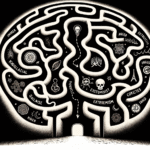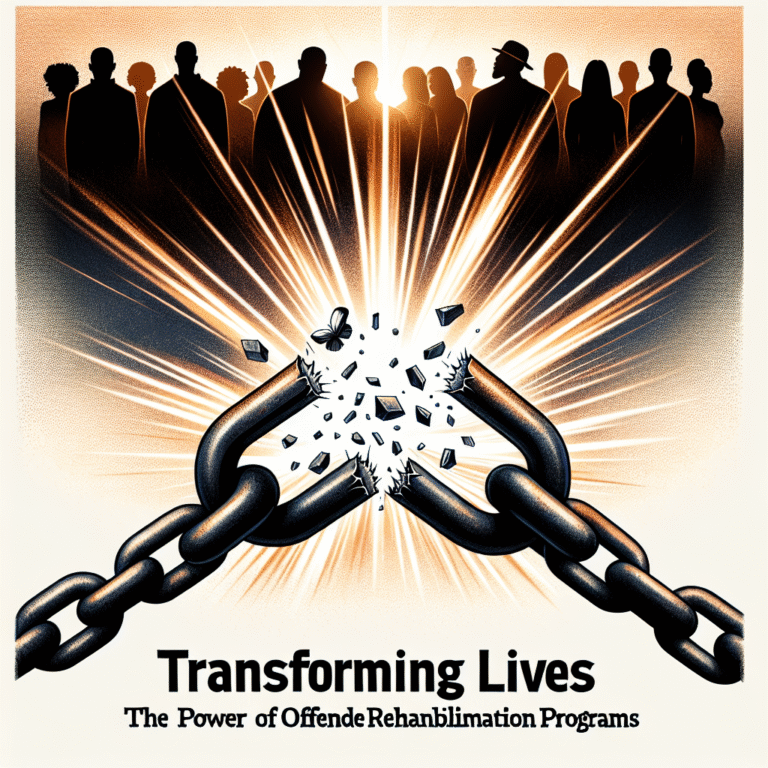
Introduction
In today’s hyper-connected world, cybercrime has morphed into a multifaceted phenomenon that affects individuals, corporations, and governments alike. With the rise of technology, we’ve witnessed a diversification of motivations behind cybercriminal activities. From Hacktivists to Scammers: The Diverse Psychological Profiles in Cybercrime encompasses a broad spectrum of actors, each motivated by unique beliefs, desires, and psychological drivers. Understanding these profiles is essential not just for cybersecurity experts but for everyone navigating the digital landscape.
As global interconnectivity increases, the implications of cybercrime stretch far beyond simple theft. This article aims to dive deep into the psychological underpinnings of cybercriminals, showcasing real-world case studies that illustrate the often-complex motivations behind their actions. By the end, readers will not only grasp the diverse landscapes of cybercrime but will also walk away with actionable insights to safeguard themselves against such threats.
The Spectrum of Cybercrime
Hacktivists: Digital Warriors for a Cause
Hacktivists use their skills for political or social activism. Motivated by a desire for change, they often see cybercrime as a form of protest. An excellent example of this is the group Anonymous, known for its high-profile cyberattacks against organizations perceived as corrupt or oppressive.
Case Study: Anonymous and the PayPal Attack
In 2010, as a response to PayPal’s decision to suspend services for WikiLeaks, Anonymous launched a Distributed Denial of Service (DDoS) attack against the online payment platform. This operation highlighted the intersection of technology and socio-political activism, showcasing how hacktivists blend technical expertise with ideological convictions.
Analysis: This case illustrates how hacktivists view themselves as modern-day Robin Hoods. Their psychological profiles reflect a blend of altruism and a deep-seated belief in their moral superiority, often leading to collective action against perceived injustices.
Scammers: The Sophisticated Con Artists of the Digital Age
Contrasting sharply with hacktivists are scammers, who employ deceit and manipulation for personal gain. Their motivations often stem from financial desperation, greed, or thrill-seeking behavior.
Case Study: The Nigerian Prince Scam
Perhaps one of the most infamous examples of online scams, the “Nigerian Prince” emails promise large sums of money in exchange for help moving assets out of Nigeria. While it may seem far-fetched, countless individuals have fallen victim, driven by the allure of quick financial gain.
Analysis: Scammers typically exhibit a lack of empathy, viewing victims merely as means to an end. Their psychological profile often includes traits of narcissism or antisocial behavior, showcasing how their self-interest overrides ethical considerations.
Cyber Espionage: The Corporate and National Players
Cyber espionage blends elements of traditional crime with strategic goals, often linked to economic or political advantages. Actors in this realm include state-sponsored hackers who gather intelligence on rivals.
Case Study: The SolarWinds Attack
In 2020, a sophisticated cyber espionage campaign exploited the SolarWinds software, allowing hackers to access numerous U.S. government agencies. This operation was attributed to Russian state-backed actors and revealed intricate layers of motivation, from corporate competition to geopolitical maneuvering.
Analysis: The psychological motivations behind cyber espionage include nationalism and the drive to outperform adversaries, reflecting a calculated approach to cybercrime where strategic objectives overshadow individual morality.
Understanding the Diverse Psychological Profiles
The Factors Influencing Cybercriminal Behavior
Understanding the psychological profiles in cybercrime requires an exploration of various influencing factors:
Socioeconomic Background: Lack of opportunities can drive individuals toward illicit acts. Economic hardship is a significant factor in scams.
Cognitive Empathy: Hacktivists often display high levels of cognitive empathy but may lack affective empathy, leading them to justify their means as a path toward a greater cause.
- Personality Disorders: Many scammers and cyber criminals may exhibit traits associated with personality disorders, such as narcissism or sociopathy.
Table: Psychological Profiles in Cybercrime
| Cybercriminal Type | Key Traits | Motivation | Example Case Study |
|---|---|---|---|
| Hacktivists | Altruism, ideological conviction | Political/Social change | Anonymous and PayPal Attack |
| Scammers | Manipulativeness, deceit | Financial gain | Nigerian Prince Scam |
| Cyber Espionage | Strategic thinking, nationalism | Economic/Political advantage | SolarWinds Attack |
Engaging with the Criminal Mind
The Impact of Technology on Cybercrime Psychology
Technological advancements continuously expand the toolbox for cybercriminals. Understanding how these tools affect psychology is crucial.
Anonymity: The internet offers a veil of anonymity that emboldens individuals to engage in illicit activities.
- Community Dynamics: Many hackers and scammers operate within communities or forums, reinforcing their behaviors and ideologies.
The Role of Social Media and the Dark Web
Platforms like the dark web facilitate discussions among cybercriminals, offering forums for sharing strategies and reinforcing criminal behavior.
Case Study: Dark Web Marketplaces
Websites such as Silk Road served as underground marketplaces where goods and services, including illicit activities, were traded. The closure of such platforms has not eliminated the demand but has forced it to evolve.
Analysis: The dark web demonstrates how social dynamics can influence individual behaviors, cultivating a shared ethos that normalizes criminal activities.
Prevention and What We Can Learn
Building a Cybersecurity Mindset
To combat cybercrime effectively, individuals should adopt a proactive approach:
Stay Informed: Knowledge is power. Regularly updated awareness of current scams and cyber threats can help individuals safeguard their information.
- Strong Security Practices: Using two-factor authentication and complex passwords can prevent unauthorized access to personal information.
Encouraging Ethical Hacking
Ethical hacking offers a means to counteract malicious cyber activities. By fostering environments where hacking skills are used for good, society can redirect potential cybercriminals.
Conclusion
From Hacktivists to Scammers: The Diverse Psychological Profiles in Cybercrime reveals the complexities and motivations that drive individuals to engage in cybercrime. The spectrum covered, from political activists to opportunistic scammers, underscores the importance of understanding not just the acts of cybercrime but the psychological elements that underlie them.
As we navigate this digital age, recognizing these patterns can empower each of us to adopt better practices for online safety and security. Cybercrime is a uniquely modern issue that requires modern solutions, starting with education and awareness. In doing so, we can build a safer digital landscape for ourselves and future generations.
FAQs
1. What motivates hacktivists to engage in cybercrime?
Hacktivists are often motivated by political or social justice issues, believing their actions are for a greater cause.
2. How do scammers differ from hacktivists?
Scammers primarily seek personal financial gain through deceitful methods, whereas hacktivists aim for ideological change.
3. Can cybercrime be prevented?
While prevention is challenging, education, strong security practices, and ethical hacking initiatives can significantly reduce risks.
4. What psychological traits are common among cybercriminals?
Many cybercriminals display manipulative tendencies, a lack of empathy, and sometimes antisocial personality traits.
5. Are there legal repercussions for cybercrime?
Yes, cybercrime is subject to various legal penalties, including fines and imprisonment, depending on the severity of the offense.
By fostering an understanding of these diverse psychological profiles, we can take collective action toward mitigating the impact of cybercrime on our society.

















